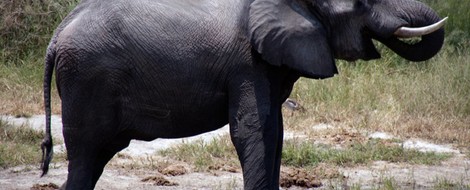Your podcast discovery platform
Curious minds select the most fascinating podcasts from around the world. Discover hand-piqd audio recommendations on your favorite topics.

piqer for: Health and Sanity Boom and bust Climate and Environment
Melissa Hutsell is an award-winning freelance journalist with a deep rooted passion for both community and international journalism. She was born and raised in Northern California, and has lived, studied, worked, and traveled in more 20 different countries. Melissa holds a Master's degree in Global Journalism from City University London, as well as degrees in Journalism and Globalization from Humboldt State University. Though she covers various topics as both a writer and editor, she specializes in business and cannabis journalism.
Zombie Genes Are Elephants’ Secret Weapons Against Cancer
Each time a cell divides, there's a chance it will mutate. Because the human body is made up of more than 37 trillion cells, scientists estimate that trillions of mutations occur everyday. Some changes are harmless; others result in disorders, like cancer.
It would make sense that animals with more cells have higher rates of cell division, and therefore, higher risks of developing mutations. But that isn’t the case. “Gigantic elephants, for example, rarely get cancer,” the article reports, “less than 5 percent of them [get cancer] as opposed to 11-25 percent of humans.” The lack of a correlation between body size and cancer is called Peto’s paradox.
The paradox suggests that other animals – like African elephants – have natural mechanisms to suppress cancer more effectively than humans. Scientists believe they’ve found those mechanisms.
For starters, elephants are found to have an unusually high amount of TP53 tumor suppressor genes. While most mammals have two, elephants have 20. As per the article, TP53 genes help prevent damaged cells from duplicating, instructing them to enter cell death when the damage is too severe.
But that’s just a part of their extraordinary defensive systems. These tumor-suppressing genes work in tandem with another tumor-suppressing gene, known as LIF6, or the “zombie gene.”
While other organisms are known to have these genes, some are dead (or turned “off”). Elephants and their relatives (manatee, rock hyrax) have turned the LIF6 gene back on, giving them yet another line of defensive.
The defense can be summarized as an extreme sensitivity to damaged DNA: when damage occurs, the genes work together to respond, killing all that rouse it. The re-animation of the gene is what gives the zombie gene its name. It also gives elephants a secret weapon to fight cancer.
